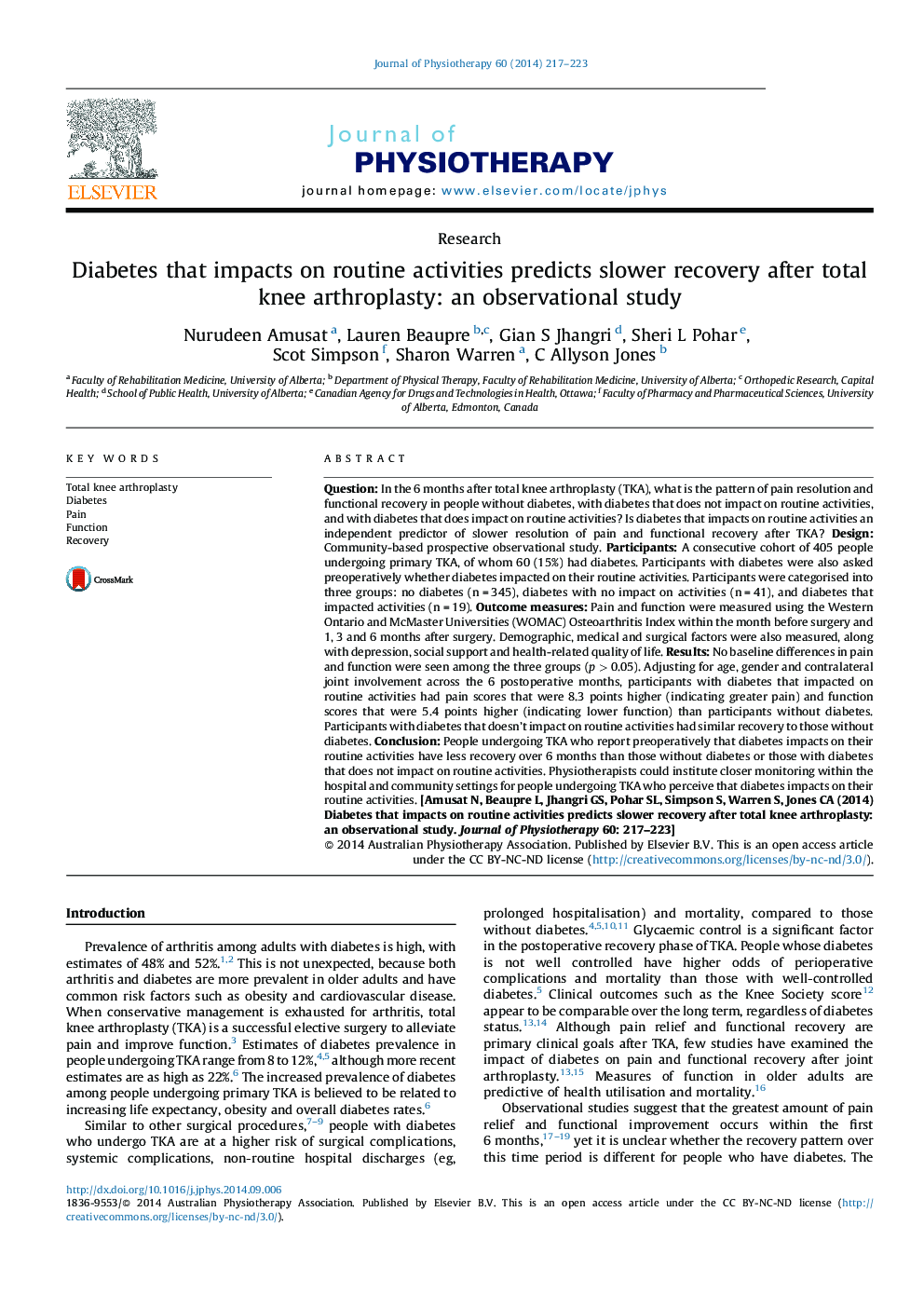| کد مقاله | کد نشریه | سال انتشار | مقاله انگلیسی | نسخه تمام متن |
|---|---|---|---|---|
| 5864402 | 1563066 | 2014 | 7 صفحه PDF | دانلود رایگان |
Question: In the 6 months after total knee arthroplasty (TKA), what is the pattern of pain resolution and functional recovery in people without diabetes, with diabetes that does not impact on routine activities, and with diabetes that does impact on routine activities? Is diabetes that impacts on routine activities an independent predictor of slower resolution of pain and functional recovery after TKA? Design: Community-based prospective observational study. Participants: A consecutive cohort of 405 people undergoing primary TKA, of whom 60 (15%) had diabetes. Participants with diabetes were also asked preoperatively whether diabetes impacted on their routine activities. Participants were categorised into three groups: no diabetes (n = 345), diabetes with no impact on activities (n = 41), and diabetes that impacted activities (n = 19). Outcome measures: Pain and function were measured using the Western Ontario and McMaster Universities (WOMAC) Osteoarthritis Index within the month before surgery and 1, 3 and 6 months after surgery. Demographic, medical and surgical factors were also measured, along with depression, social support and health-related quality of life. Results: No baseline differences in pain and function were seen among the three groups (p > 0.05). Adjusting for age, gender and contralateral joint involvement across the 6 postoperative months, participants with diabetes that impacted on routine activities had pain scores that were 8.3 points higher (indicating greater pain) and function scores that were 5.4 points higher (indicating lower function) than participants without diabetes. Participants with diabetes that doesn't impact on routine activities had similar recovery to those without diabetes. Conclusion: People undergoing TKA who report preoperatively that diabetes impacts on their routine activities have less recovery over 6 months than those without diabetes or those with diabetes that does not impact on routine activities. Physiotherapists could institute closer monitoring within the hospital and community settings for people undergoing TKA who perceive that diabetes impacts on their routine activities. [Amusat N, Beaupre L, Jhangri GS, Pohar SL, Simpson S, Warren S, Jones CA (2014) Diabetes that impacts on routine activities predicts slower recovery after total knee arthroplasty: an observational study. Journal of Physiotherapy 60: 217-223]
Journal: Journal of Physiotherapy - Volume 60, Issue 4, December 2014, Pages 217-223
